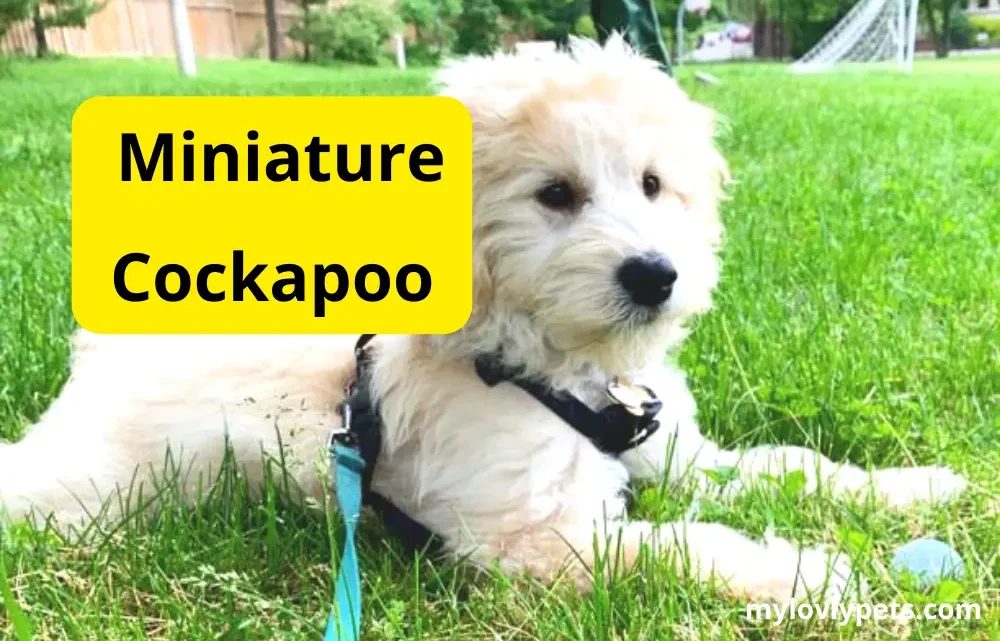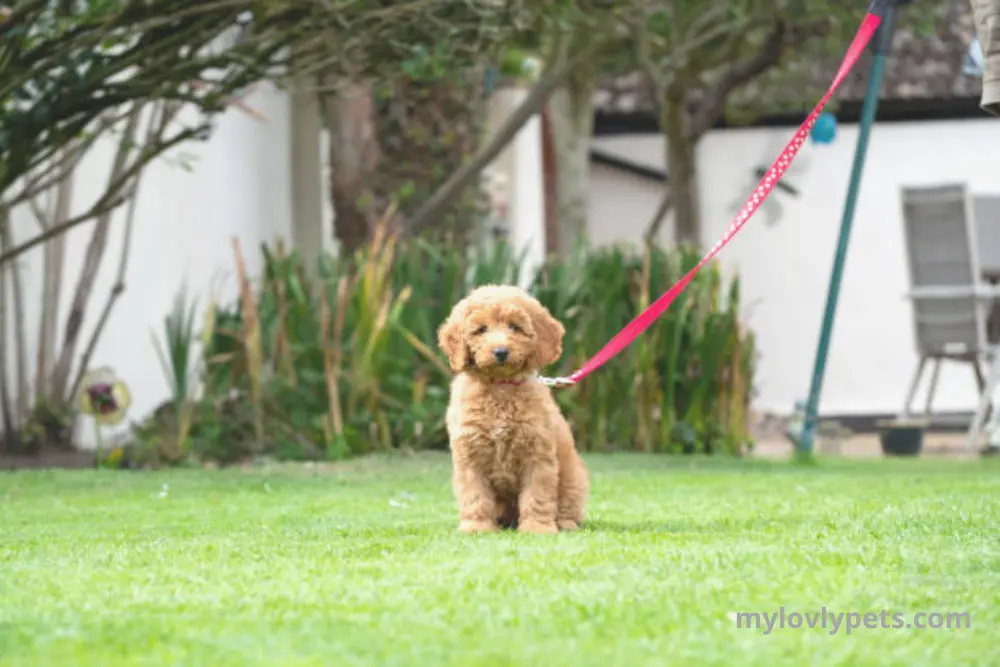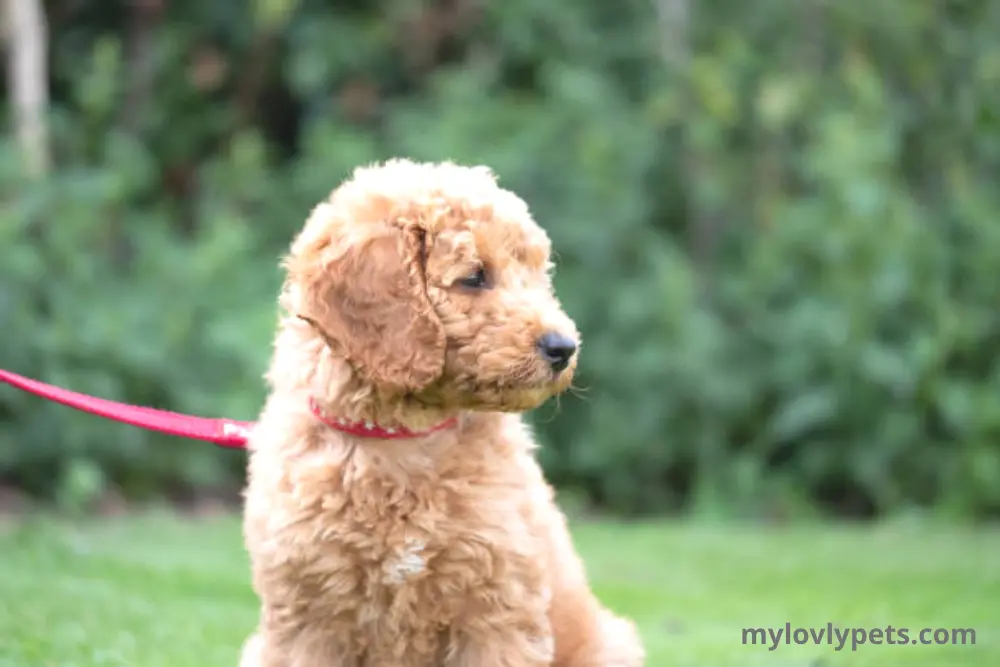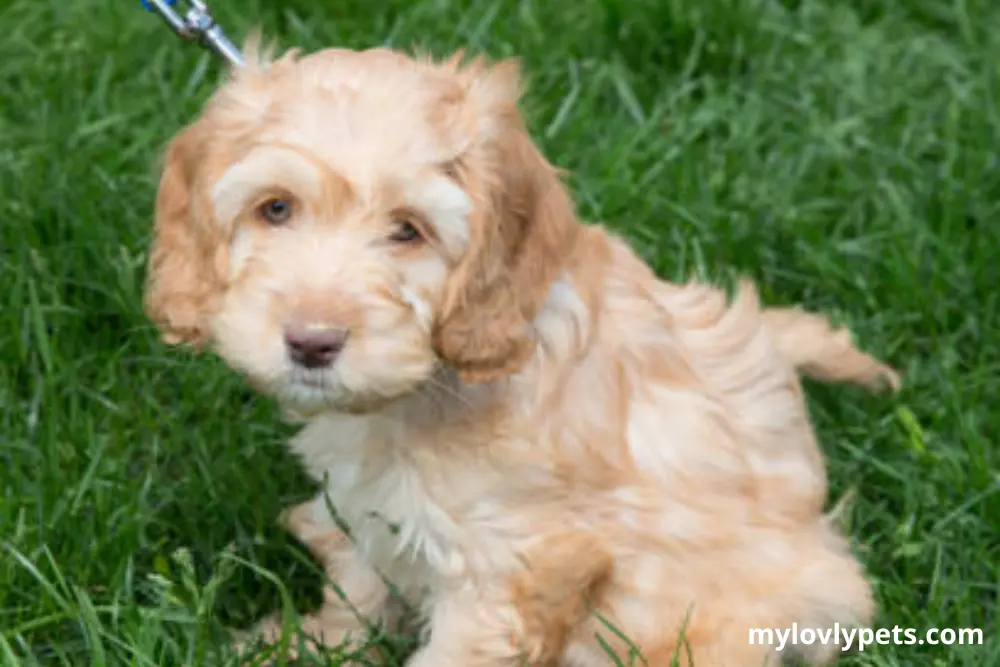
Miniature Cockapoo: All Information You Need To Know
What is a Miniature Cockapoo?
So, you’re thinking about getting a Miniature Cockapoo? Well, you’re not alone! These adorable dogs are a mix of Cocker Spaniel and Poodle, bringing the best of both breeds. Miniature Cockapoos are smaller, making them perfect for people who want a compact, yet lovable companion. Their history dates back to the 1950s, when breeders first started crossing these two breeds to create a dog with a hypoallergenic coat and a sweet temperament. If you’re after a dog that’s both charming and easy to care for, a Miniature Cockapoo might be just what you’re looking for.
They’re not just cute either – these dogs pack in the personality. Curious, affectionate, and playful, they tend to get along with everyone, making them ideal family pets. Let’s dive into the key characteristics of the Miniature Cockapoo, from their size to their temperament, and see why they’re the perfect addition to so many households.
What is the History and Origin of the Miniature Cockapoo?
The Miniature Cockapoo was bred by crossing a Cocker Spaniel with a Poodle, two beloved dog breeds. This hybrid dog became popular in the 1950s when breeders aimed to create a dog with the intelligence and low-shedding coat of the Poodle, combined with the affectionate, friendly nature of the Cocker Spaniel. Over the years, the Miniature version has been refined for those seeking a smaller, more manageable companion.
What Are the Key Characteristics of a Miniature Cockapoo?
These dogs are known for their playful nature, affectionate temperament, and hypoallergenic coats. But there’s more to it. Here’s a quick breakdown of their key features:
| Characteristic | Details |
|---|---|
| Size | Typically between 10-15 inches tall and 12-20 pounds. |
| Coat Type | Wavy or curly, often low-shedding, and hypoallergenic. |
| Color | Can come in various colors, from cream to black. |
| Temperament | Friendly, intelligent, and adaptable. |
| Personality Traits | Curious, affectionate, and playful. |
Miniature Cockapoos are often described as the best of both worlds – friendly like the Cocker Spaniel, but smart and low-maintenance like the Poodle. You get a dog that loves to cuddle, but also knows how to entertain itself (and you) with a good game of fetch. They’re just the right size for apartment living, but they’re still big enough to show off their playful side.

Why Should You Consider Getting a Miniature Cockapoo?
If you’re considering a dog, a Miniature Cockapoo might be the one for you. But why, you ask? Well, this breed has a unique charm. A Mini Cockapoo is a delightful blend of Cocker Spaniel and Poodle, meaning you get the best of both worlds: the affectionate nature of the Cocker Spaniel and the intelligence (and hypoallergenic coat) of the Poodle.
What Makes Miniature Cockapoos Unique Compared to Other Dog Breeds?
The Miniature Cockapoo stands out for several reasons. First off, their size is just right for many households – not too big, not too small. They usually grow between 10-15 inches tall and weigh around 12-20 pounds, making them perfect for families who want a dog that’s big enough to enjoy walks but small enough for comfortable indoor living.
But their personality is what really sets them apart. Miniature Cockapoos are super friendly, getting along well with kids, other pets, and strangers. They’re naturally social and have a playful energy that makes them ideal companions for anyone, whether you’re active or more laid back.
What Are the Benefits of Owning a Miniature Cockapoo?
Perfect for Apartment Living
They’re compact, which makes them ideal for apartments. They don’t need a ton of space to be happy, and their moderate exercise needs mean they can get their playtime indoors too. Plus, their size makes them easy to manage, whether you’re walking them in the park or lounging at home.
Family-Friendly
They’re fantastic for families. Their affectionate, loving nature makes them great companions for kids and adults alike. They’re not just “good with kids,” they actually enjoy being around people and thrive in a social environment.
Low-Shedding
If allergies or constant cleaning are a concern for you, a Mini Cockapoo might be a lifesaver. Thanks to the Poodle genes, their coat is low-shedding, meaning less fur around the house and a lower chance of triggering allergies. That’s a huge win if you’re after a hypoallergenic dog.
What Are the Physical Traits of a Miniature Cockapoo?
Miniature Cockapoos are small, but they pack a big personality into that compact size. Generally, they stand around 10-15 inches tall and weigh 12-20 pounds, making them the perfect size for those who want a dog that’s easy to manage but still has enough presence to be a real companion.
Their coat is one of their most distinctive features. It’s usually wavy or curly, a result of their Poodle parentage, and it’s low-shedding – a big plus for allergy sufferers. You’ll see them in a variety of colors, from cream, black, and brown, to even parti-colored coats, which are two-tone.
As for their eyes, they often have big, expressive eyes that just melt your heart. Their ears are long, droopy, and soft, adding to their cuddly, lovable appearance. With their cute, button-like features, it’s easy to see why they’re such a popular breed.
How Long Do Miniature Cockapoos Live?
The lifespan of a Miniature Cockapoo typically falls between 12 and 15 years, which is pretty great for a dog of their size. With the right care, many live even longer. Good nutrition, regular vet checkups, and plenty of exercise can keep them healthy and active well into their senior years.
Their life expectancy is influenced by a mix of factors, but generally, this breed is considered relatively healthy. While they may inherit some health issues from their parent breeds, such as hip dysplasia or progressive retinal atrophy (PRA), regular vet visits and proactive care can help manage these risks.

What Are the Grooming Needs of a Miniature Cockapoo?
Miniature Cockapoos are known for their low-shedding, curly coats that require regular attention. While their Poodle genes help with allergy-friendly traits, their coat can get tangled and matted if not maintained properly.
To keep them looking their best, regular grooming is a must. Cockapoos have a wavy or curly coat that can trap dirt, moisture, and loose hair, leading to matting and discomfort if neglected. These coats need consistent brushing, which helps prevent tangles and keeps their skin healthy.
How Often Should You Groom a Miniature Cockapoo?
You should brush your Miniature Cockapoo at least 3 times a week to avoid matting. If their hair gets longer, you may need to brush them daily. Regular brushing is essential, especially if they’re spending time outdoors, where debris and tangles can build up.
In addition to brushing, bath time should happen every 4-6 weeks or as needed based on their activity level and how dirty they get. Over-bathing can dry out their skin, so try not to go too crazy on the soap.
What Grooming Tools and Techniques Are Best for a Miniature Cockapoo?
For the best results, here’s what you’ll need:
- Slicker Brush
Great for detangling and preventing mats. Gently work through their coat to get rid of knots. - Pin Brush
Perfect for finishing up after the slicker brush to smooth out their hair. - Comb
A wide-tooth comb is useful for getting through any stubborn tangles in the coat. - Clippers/Scissors
Trimming their coat around the eyes, ears, and paws helps maintain their shape and prevent overgrowth. - Dog Shampoo
Use a gentle, hypoallergenic shampoo designed for dogs. Avoid human shampoos, as they can irritate their sensitive skin.

What is the Temperament of a Miniature Cockapoo?
Miniature Cockapoos are known for their friendly, affectionate, and playful nature. They inherit the best traits from both their parent breeds – the Poodle and the Cocker Spaniel. This mix makes them both intelligent and easy to train, as well as naturally sociable. They love to be around people and are typically outgoing and energetic.
Despite their lively energy, they can also be quite calm when at home, making them great companions for any lifestyle. Whether you’re an active person or prefer more relaxed activities, the Miniature Cockapoo adapts well.
Are Miniature Cockapoos Good with Kids and Other Pets?
Absolutely! Miniature Cockapoos are excellent family dogs. They’re gentle and patient with children, making them great playmates for little ones. Their friendly and tolerant demeanor means they generally get along with people of all ages. However, like any dog, early socialization is key to helping them get used to kids and different environments.
When it comes to other pets, Cockapoos are usually pretty chill. They typically do well with other dogs and even cats, especially if they’re raised together. Their social nature means they’re not particularly territorial or aggressive, so they fit nicely into homes with multiple pets.
How Do Miniature Cockapoos Behave in Different Environments?
Miniature Cockapoos are adaptable and can thrive in a variety of environments, making them great for people living in apartments or houses. Their size is perfect for smaller living spaces, and they’re generally happy as long as they get enough exercise and attention.
- At Home: They’re loving, loyal, and great for bonding with their owners. They’ll follow you around and enjoy any form of companionship.
- In Public: They’re typically well-behaved when meeting new people or dogs. Their friendly temperament makes them the life of the party in dog parks.
- On a Leash: Since they’re intelligent, they pick up walking cues pretty easily. However, be aware that they can get excited and might tug a little when they see something interesting.
What Are the Health Concerns and Costs of Owning a Miniature Cockapoo?
Miniature Cockapoos are generally healthy dogs, but like any breed, they do come with their own set of potential health issues. Luckily, with proper care and attention, many of these issues can be managed or prevented. As for the cost of owning one, it can vary depending on several factors. Let’s break it down.
What Are Common Health Issues in Miniature Cockapoos?
While Miniature Cockapoos are typically a healthy breed, they can inherit health problems from their parent breeds. Some of the most common issues to look out for include:
- Hip Dysplasia
A condition where the hip joint doesn’t develop properly, which can lead to arthritis or pain. Regular vet checkups and keeping your dog at a healthy weight can reduce risks. - Progressive Retinal Atrophy (PRA)
A genetic condition that leads to vision loss over time. It’s not always preventable, but early detection can help manage it. - Ear Infections
Due to their long, floppy ears, Miniature Cockapoos are prone to ear infections. Regular ear cleaning can help prevent this. - Allergies
Like many Poodles, Cockapoos may have allergies to food or environmental factors. Keep an eye out for signs like excessive itching or skin rashes.
By staying on top of vet visits and giving them proper care, most of these issues can be managed or avoided.
How Much Does a Miniature Cockapoo Cost and What Affects the Price?
The cost of a Miniature Cockapoo can vary widely, but generally, expect to pay anywhere from $800 to $2,500 for a puppy. Several factors influence this price:
Color and Coat Type
Rare coat colors or hypoallergenic traits may also raise the price. For example, Cockapoos with a particularly rare coat color or those that show fewer signs of shedding might cost more.
Breeder Reputation
A well-established breeder with a history of healthy, well-socialized puppies will likely charge more. Be wary of cheaper prices, as they might indicate poor breeding practices or unhealthy puppies.
Health Conditions
Puppies that come from parents with known health screenings or those raised in a health-conscious environment may cost more due to the additional care and testing.
Location
Prices can also fluctuate based on where you’re buying the puppy. Breeders in urban areas or high-demand regions may have higher prices due to higher operating costs.

Where Can You Find a Miniature Cockapoo for Sale?
Finding the perfect Miniature Cockapoo might take a little patience, but it’s worth the effort. Whether you’re looking for a reputable breeder, adoption center, or rescue organization, there are several places to start your search.
What Are the Best Places to Find a Miniature Cockapoo?
- Reputable Breeders
The most common way to find a Miniature Cockapoo is through a breeder. You’ll want to look for reputable breeders who specialize in the breed. These breeders prioritize health screenings, socialization, and proper care, ensuring you get a well-adjusted, healthy puppy. Make sure the breeder is transparent about the puppy’s parents and health history. - Adoption Centers
If you’re open to adopting, there are rescue organizations and adoption centers that specialize in Cockapoos or Poodle mixes. While it might take some time to find a Miniature Cockapoo through adoption, it’s a wonderful option if you want to give a dog a second chance. - Pet Stores (Caution)
While some pet stores might have Miniature Cockapoos for sale, it’s essential to be cautious. Many pet stores source their puppies from puppy mills, which are often associated with unethical breeding practices. Always ask where the puppies are coming from and look for breeder referrals.
How Do You Choose a Responsible Breeder?
Choosing the right breeder is crucial. A responsible breeder ensures you get a healthy, well-socialized dog. Here’s what to look for:
- Health Screening
Ask the breeder about the health screenings the parents have undergone, especially for conditions common in Cockapoos like hip dysplasia or progressive retinal atrophy (PRA). A good breeder will provide you with the necessary documentation. - Socialization Practices
Make sure the breeder raises the puppies in a socialized environment. This means they should interact with people, other animals, and various situations, helping the puppy grow into a well-adjusted adult dog. - Breeder’s Reputation
Do some research before committing. Check reviews, talk to previous buyers, and visit the breeder in person if possible. A responsible breeder will be happy to answer your questions and welcome a visit. - Transparency
A reputable breeder will be transparent about the dog’s lineage, health history, and living conditions. Avoid breeders who are secretive or unwilling to provide this information.
What is the Best Diet for a Miniature Cockapoo?
When it comes to feeding your Miniature Cockapoo, it’s all about balance. Their diet should support their active nature while keeping them healthy and fit. A high-quality, well-rounded dog food is a great place to start. It should contain the right mix of proteins, fats, and carbohydrates to fuel their energy levels without adding unnecessary weight.
Most owners opt for dry kibble or wet food, but always check for a food that’s made for small breeds since they have unique nutritional needs. Ideally, aim for foods with real meat as the first ingredient, and avoid fillers like corn, soy, or by-products. You’ll also want to look for foods that support joint health, given the potential for hip issues in the breed.
What Are the Nutritional Needs of a Miniature Cockapoo?
Miniature Cockapoos, being small but energetic dogs, have specific nutritional requirements. Here’s what their diet should include:
- Protein
Look for foods with high-quality animal-based protein like chicken, turkey, or fish. Protein is essential for their muscle development, growth, and overall health. - Healthy Fats
Healthy fats, such as those from fish oil or flaxseed, help support skin health, coat quality, and energy. Look for foods with omega-3 and omega-6 fatty acids. - Fiber
Since these dogs are small, their digestive systems are more sensitive. Foods with a moderate amount of fiber help maintain a healthy gut and prevent constipation. - Vitamins and Minerals
Essential for immune health, coat quality, and overall wellness. Make sure their food contains a blend of vitamins A, C, and E, as well as calcium and phosphorus for bone health.
What Foods Should You Avoid?
There are certain foods that should be avoided, as they can be harmful to your Miniature Cockapoo:
Alcohol
Never give your dog alcohol. It can cause severe toxicity, even in small doses.
Chocolate
Always a big no-no for dogs. It contains theobromine, which can be toxic.
Grapes and Raisins
These can cause kidney failure in dogs, even in small amounts.
Onions and Garlic
Both can damage red blood cells and lead to anemia.
Xylitol
Found in sugar-free gum and some baked goods, xylitol can cause a dangerous drop in blood sugar levels and liver damage.
How to Care for a Miniature Cockapoo: Training and Exercise
Miniature Cockapoos are smart, playful, and eager to please, making them relatively easy to train. But like any dog, they need consistent guidance and plenty of exercise to keep them happy and healthy.
What Are the Best Training Tips for Miniature Cockapoos?
- Start Early
Begin training as soon as you bring your Miniature Cockapoo home. Early socialization and basic obedience training will help them become well-rounded dogs. Use positive reinforcement techniques like treats and praise to encourage good behavior. - Keep It Fun
Miniature Cockapoos love mental stimulation, so training sessions should be engaging and fun. Keep them short (10-15 minutes) and vary the activities to prevent boredom. - Crate Training
Crate training can help your Cockapoo learn independence and give them a safe space when you’re not around. Make the crate a positive place by adding their favorite toys and bedding. - Consistency is Key
Be consistent with commands and routines. Cockapoos thrive on structure, and regularity will help them learn faster.
What Type of Exercise Does a Miniature Cockapoo Need and How Often?
Miniature Cockapoos are energetic dogs, but they don’t require hours of exercise. Daily walks and some playtime are enough to keep them fit and happy.
- Walks
Aim for a 20-30 minute walk each day. This helps them burn off energy and keep their joints healthy. They enjoy sniffing around, so it’s also good for mental stimulation. - Playtime
Cockapoos are playful by nature. Play fetch, tug-of-war, or let them explore a dog park to socialize with other dogs. Make sure the play sessions are balanced with rest, as overexertion can lead to tiredness. - Mental Exercise
Puzzle toys or teaching them new tricks are great ways to keep their brains active. A mentally stimulated dog is a happy dog.
Are Miniature Cockapoos Hypoallergenic?
One of the reasons people are drawn to Miniature Cockapoos is their hypoallergenic coat. Their Poodle genes contribute to a low-shedding, curly coat, which reduces the amount of dander they release into the environment.
How Does the Coat Affect Allergies?
Miniature Cockapoos are generally a better option for people with allergies because their coat tends to trap the dander rather than releasing it into the air. However, no dog is truly hypoallergenic, and some people may still have allergic reactions. Regular grooming and cleaning can help minimize these allergens.
What Are the Best Practices for Minimizing Allergies?
- Frequent Grooming
Regularly brush and bathe your Miniature Cockapoo to reduce shedding and dander buildup. Ideally, use a hypoallergenic shampoo designed for dogs. - Clean the Home
Wash their bedding and toys regularly. Vacuum your home often to remove any pet hair or dander. - Air Purifiers
Consider using an air purifier to filter out pet allergens from the air, especially if you live in a small space.
What Are the Pros and Cons of Owning a Miniature Cockapoo?
Owning a Miniature Cockapoo comes with its benefits, but like any pet, there are also some challenges to consider.
Pros:
- Great for Families: Their friendly, gentle nature makes them excellent companions for children and other pets.
- Low-Shedding Coat: Their hypoallergenic coat makes them a great choice for people with mild allergies.
- Adaptable: They fit well in a variety of living situations, whether in an apartment or house.
- Smart and Trainable: Their Poodle heritage means they’re quick learners and eager to please.
Cons:
- Requires Regular Grooming: Their curly coat needs frequent brushing and occasional trips to the groomer.
- Can Be Energetic: While not as high-energy as some breeds, they still need daily exercise to keep them happy.
- Potential Health Issues: Like many mixed breeds, they can inherit health issues from both parent breeds, so regular vet checkups are essential.
📚 Sources
- American Kennel Club (AKC) – Cockapoo breed standard and history
👉 https://www.akc.org/dog-breeds/cockapoo/ - Cockapoo Club of America – General breed information and standards
👉 https://www.cockapooclubofamerica.org - Poodle Club of America – Health concerns and traits of Poodles
👉 https://www.poodleclubofamerica.org - Petfinder & Adopt-a-Pet – Cockapoo adoption listings
👉 https://www.petfinder.com
👉 https://www.adoptapet.com - National Canine Cancer Foundation – Common health issues in Cockapoos
👉 https://www.wearethecure.org - The Spruce Pets – Grooming and care tips for Cockapoos
👉 https://www.thesprucepets.com - American Veterinary Medical Association (AVMA) – Tips on choosing a responsible breeder
👉 https://www.avma.org


